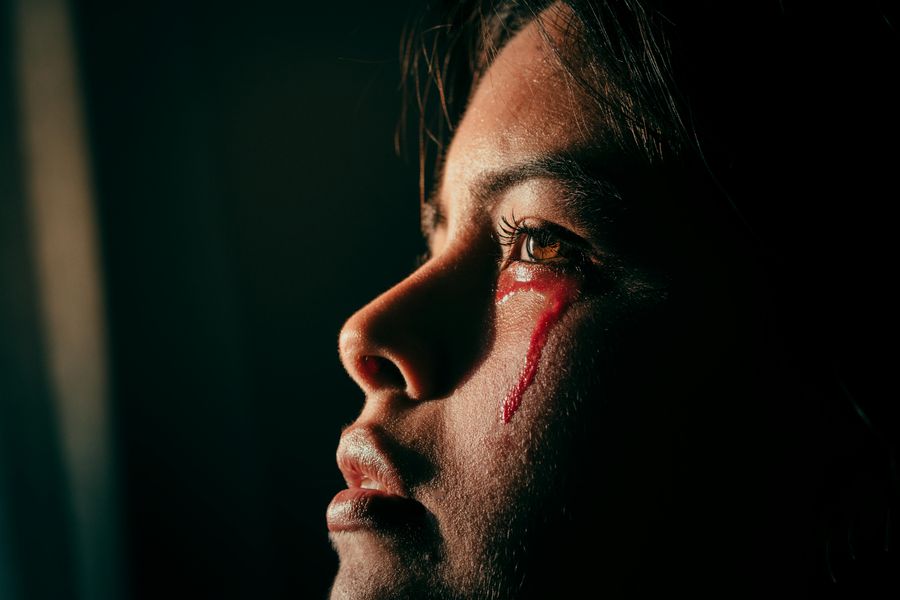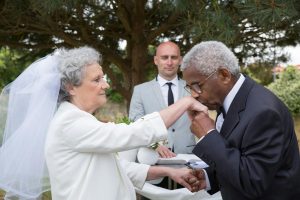Acknowledging Past Abuse
Are you struggling with fear of dating after leaving an abusive relationship? You’re not alone.
Emotional scars from past abuse can make it challenging to take those first steps toward a new relationship. But don’t worry – with the right support, patience, and knowledge, you can learn to trust again and find a healthy, happy relationship.
Let’s explore some key tips for overcoming this fear and starting to date again.
The Importance of Acknowledgment
The first step in moving forward after leaving an abusive relationship is to acknowledge your past experiences. This can be a difficult but essential part of the healing process.
By confronting your feelings and accepting what happened, you can take important steps to move past the trauma and start rebuilding your life. But acknowledging past abuse also means recognizing that it can have lasting effects on your ability to trust and form healthy relationships.
This is perfectly normal and nothing to be ashamed of. However, it’s important to seek professional help if you need it.
A therapist or counselor can help you work through your emotions and develop coping mechanisms that will allow you to move forward.
Building a Support System
Another crucial step in overcoming fear of dating after leaving an abusive relationship is to build a strong support system. This might include friends, family members, or a support group.
Having people who understand what you’ve been through can provide much-needed emotional support and help you feel less isolated and alone. It’s also important to be open and honest with your support system about your fears and concerns.
They can provide valuable feedback and help you navigate any challenges you may encounter as you start dating again.
Patience with Healing and Learning to Trust Again
Taking Your Time
Perhaps the most important thing to keep in mind as you start dating again is to be patient with yourself. Healing takes time, and there are no overnight solutions.
Be gentle with yourself as you work through your fears and take small steps toward building a new relationship.
Learning to Trust
Learning to trust again can be a slow and challenging process, but there are steps you can take to ease the journey. This might include setting healthy boundaries, communicating openly and honestly with your partner, and taking your time getting to know them before moving too quickly.
Learning About Healthy and Abusive Relationships
Recognizing the Signs
Before you start dating again, it’s essential to take some time to learn about healthy and abusive relationships. This will equip you with the knowledge you need to identify warning signs and toxic traits in a potential partner.
Healthy relationships are characterized by mutual respect, open communication, and a sense of equality. Abusive relationships, on the other hand, involve coercion, control, and manipulation.
Learning to recognize the signs of an abusive partner can help you avoid potentially dangerous situations.
Trusting Instincts and Spotting Warning Signs
Listening to Your Gut
Trusting your instincts is another critical skill to develop when dating after leaving an abusive relationship. If something doesn’t feel right, it’s important to trust your gut and speak up about your concerns.
Ignoring red flags or warning signs can lead to a dangerous situation. Some warning signs to watch for include excessive jealousy or possessiveness, controlling behavior, and verbal or physical abuse.
If you notice any of these behaviors in a potential partner, it’s essential to take them seriously and prioritize your safety.
Taking It Slow and Identifying Triggers
Understanding Your Needs
Finally, taking it slow and identifying your triggers is key to overcoming fear of dating after leaving an abusive relationship. This means taking your time getting to know someone and not rushing into anything too quickly.
It’s also important to be aware of your triggers and to communicate them with your partner. These might include certain behaviors or situations that remind you of past abuse.
By identifying these triggers, you can work together with your partner to develop strategies for coping with them and preventing them from escalating.
Dating After Leaving an Abusive Relationship: Additional Considerations
Need for Healing and Self-Care
When leaving an abusive relationship, it’s important to prioritize healing and self-care before thinking about dating again. Take time to rediscover who you are and what you want out of life.
Focus on rebuilding your sense of self-worth and self-esteem by participating in activities that bring you joy and make you feel good about yourself. It’s also important to take care of yourself physically and mentally.
Eating a healthy diet, exercising regularly, and getting proper sleep can all contribute to a better mental and emotional state. Seeking support from a therapist or counselor can also be beneficial in navigating the healing process.
Building a Support System
Building a strong support system is crucial when dating after leaving an abusive relationship. This support system can include close friends, family members, or a support group.
These individuals can provide emotional support, a listening ear, and can help you identify red flags in potential partners. It’s also important to communicate openly with your support system about your dating experiences.
They can provide valuable feedback and help you navigate any challenges that may arise.
Learning to Trust Again
Learning to trust again after experiencing abuse can be a slow and challenging process. It’s important to take small steps towards building trust with new people, starting with your support system and moving on to close friends or co-workers.
Setting healthy boundaries and being mindful of red flags in new relationships can also help in regaining trust.
Communication with Potential Partner About Past Abuse
When entering a new relationship after leaving an abusive one, it’s important to communicate openly and honestly with your partner about your past experiences. This conversation should happen when both parties feel ready and comfortable, and it’s essential to be clear about the boundaries you need to feel safe and respected.
Sharing your past experiences can be a vulnerable and challenging conversation, but it’s important to remember that a healthy partner will listen and respond with empathy. Being open and honest about your past can also foster a deeper level of trust and intimacy in the relationship.
Defining the Kind of Relationship Wanted
When entering the dating world again, it’s important to be clear about the kind of relationship you want. Take time to consider what you need and want from a partner, including emotional, physical, and mental needs.
It’s also essential to be aware of any red flags or warning signs that may arise in a new relationship, such as excessive jealousy or possessiveness. Setting healthy boundaries and clearly communicating your needs and expectations can also contribute to a more fulfilling and positive dating experience.
In Conclusion
Dating after leaving an abusive relationship is a courageous and challenging step. Prioritizing healing and self-care, building a support system, learning to trust again, communicating openly about past abuse, and defining the kind of relationship wanted are all critical considerations for a safe and healthy dating experience.
Remember to take things at your own pace and listen to your intuition when entering new relationships. With patience, self-care, and support, you can build a happy and fulfilling romantic future.
In conclusion, navigating dating after leaving an abusive relationship requires courage, patience, and self-care. By acknowledging past abuse and taking the time to heal, building a strong support system, learning to trust again, communicating openly about past abuse, and defining the kind of relationship wanted, you can take important steps toward finding a safe and fulfilling romantic future.
Remember that the healing process takes time and effort, but with the right support and mindset, it’s possible to move forward and build happy, healthy relationships. By using these considerations, you can prioritize your safety and well-being while pursuing a new romance.



